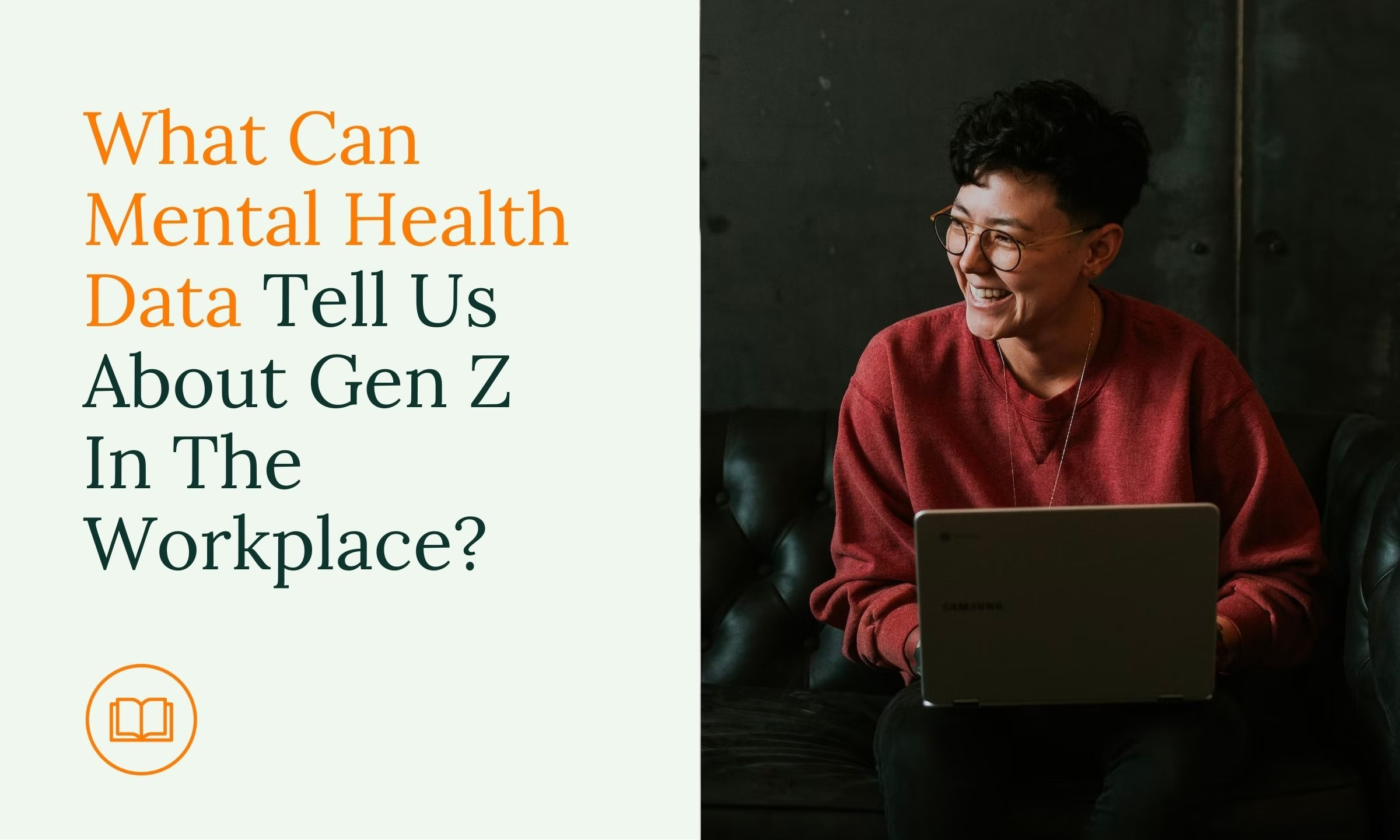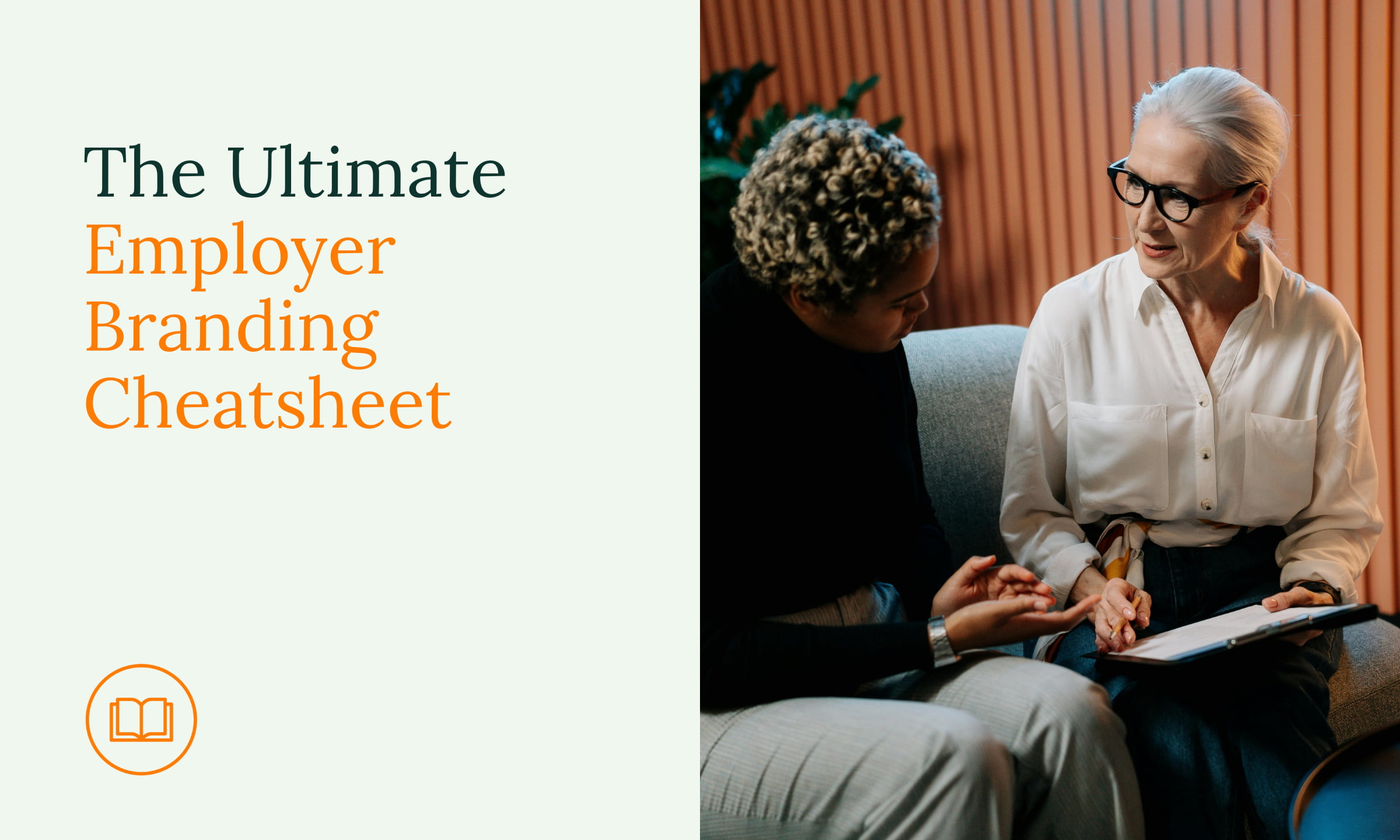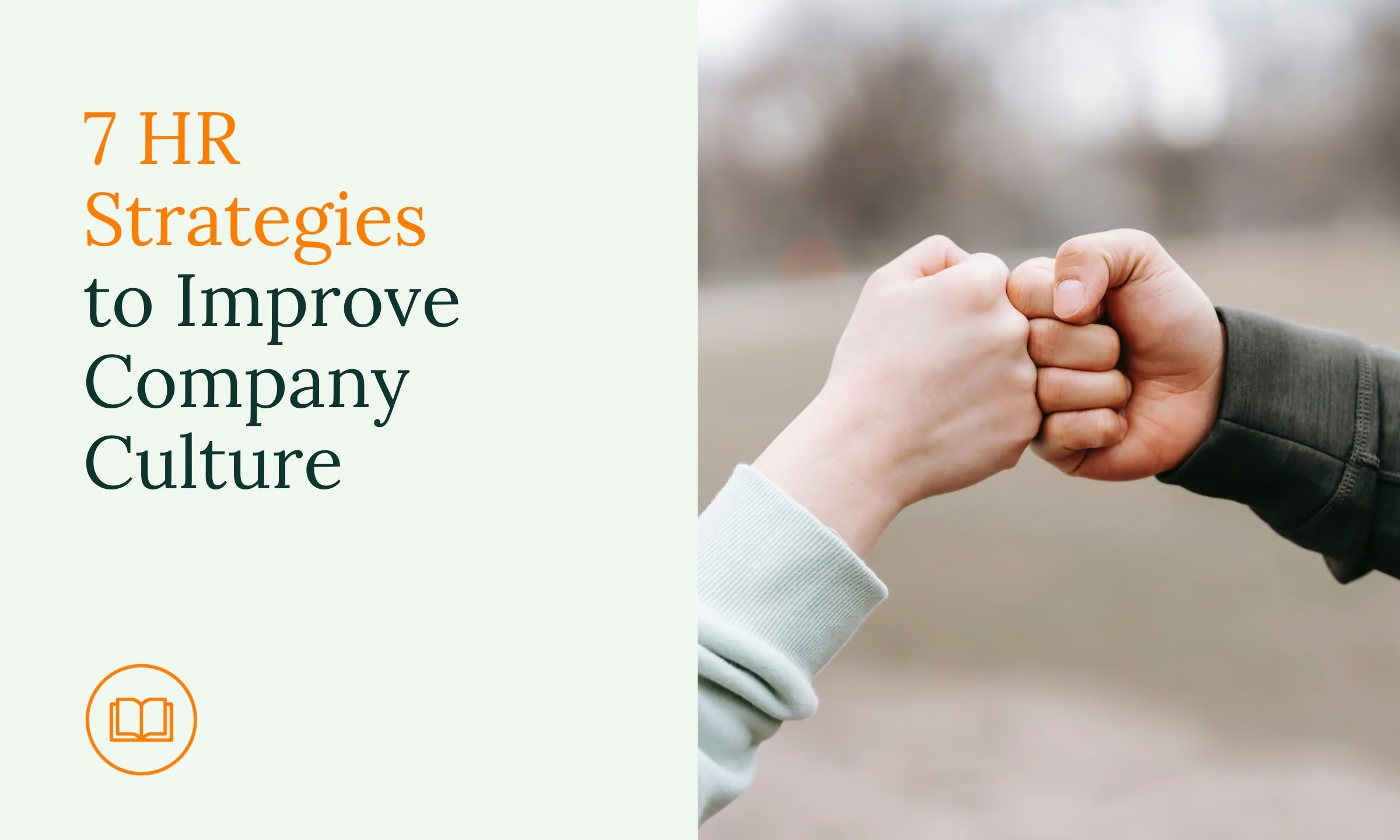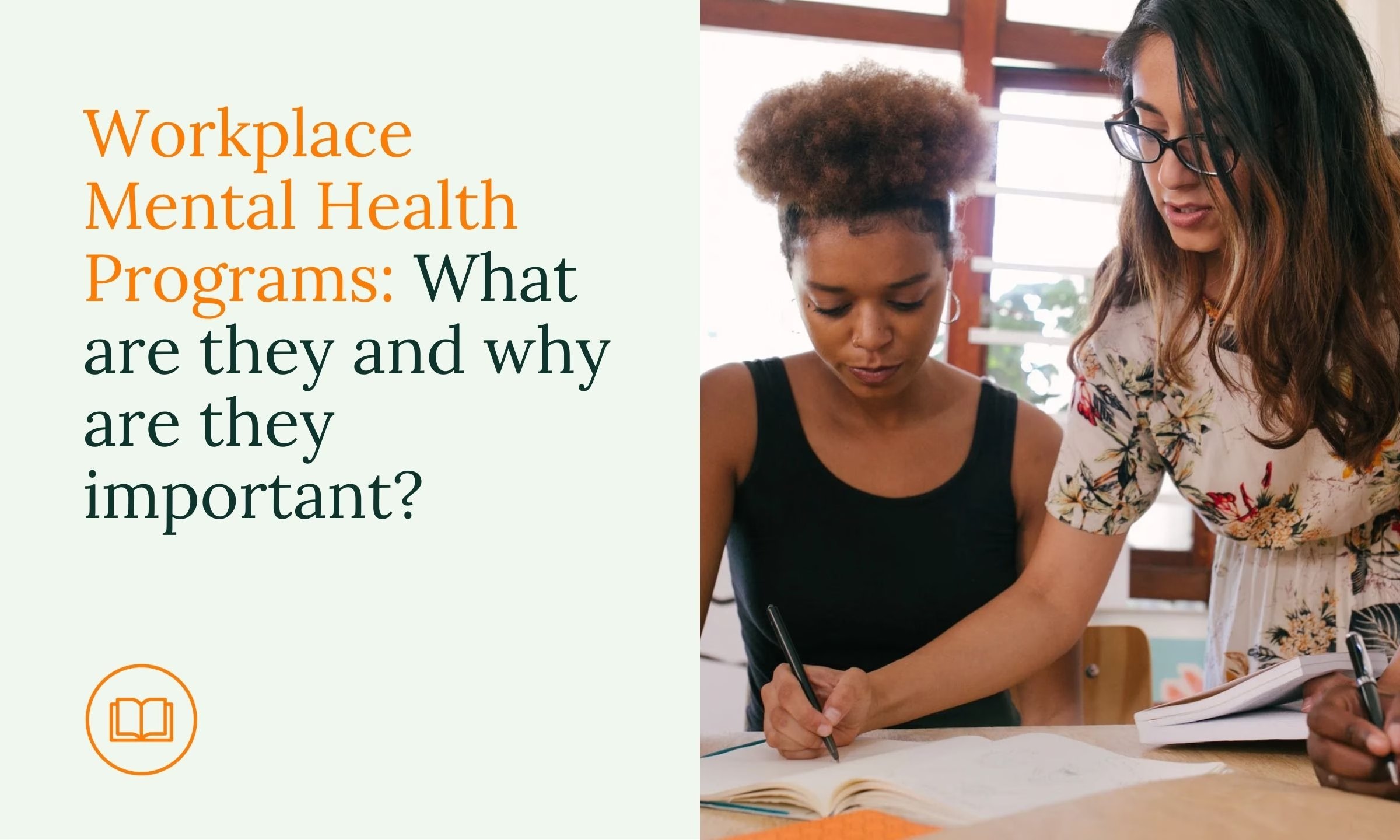What are your stereotypes about working with Gen Z? Are they a bunch of innovative thinkers, speedier than you could imagine with anything digital? Are they a sensitive, sleepy group who have to be corralled into doing any work? It’s time to smash stereotypes with cold, hard data. Read on for all the fascinating insights mental health data provides to understand Gen Z in the workplace!

New insights from nilo.health data offer an exciting lens to understand mental health at work from the perspective of Gen Z, Millennials, Boomers and more. Drawing from our extensive database, we are able to offer sharp facts that highlight generational divides in the way we understand mental health.
The latest nilo.health insights show that:
- Gen Z and Millennials engage in significantly higher usage of our one-to-one counseling services than older generations: 55% of both Millennials and Gen Zs access the service, vs 38% of Gen Xers and 27% of Boomers.
- Gen Z has high interest in topics including anxiety issues, healthy lifestyle and relationships.
- Gen Z has the least concern in work performance issues; only 6.78% of Gen Z employees are worried about their work performance, versus 12% of millennials, 16.5% of Gen Xers and a whopping 20.5% of Boomers.
But what does this data mean? And how much can we really put generations into boxes, rather than understanding data as shedding light on particular life and career stages? Let’s dive in past the numbers.
The myth of Gen Z’s poor work ethic
On the surface, these statistics tie neatly into general stereotypes about Gen Z. Gen Z are widely perceived as a group who wish to work on their own terms rather than putting in effort, and who are more concerned with their own internal life than wider company goals. According to Forbes, this has led to managers and HR leaders perceiving Gen Z as “difficult”, finding them 74% harder to work with than other generations.
But this is a misreading of nilo.health’s data. Wider perceptions of Gen Z can in general be attributed to the typical culture shock of a new generation entering the workforce; in their time, millennials were accused of being “special snowflakes”, while Gen Xers’ sleepy style led many Boomers to brand them as “unprofessional”. And when considered in another light, nilo.health’s data shows that in fact, Gen Z’s approach to mental health might lead to more success in the workplace, rather than less.
Here are some learnings from nilo.health’s data.
A more holistic understanding of what ‘work’ means
Gen Z have grown up during a time in which mental health is less stigmatized, with a greater understanding of how our own personal issues affect our wider lives. As a result, the fact that Gen Z are marking anxiety issues, healthy lifestyle and relationship topics higher on their list of concerns might not necessarily mean that they consider these more important than their work.
Dealing with anxiety issues will help them perform better at work, suffer less fear around deadlines, and stand up strong in any public speaking opportunities. Maintaining a healthy lifestyle has been shown to increase focus and productivity at work.
Rather, Gen Zs are likely to understand that they can’t leave their personal life at the door when they come into the office. Instead, to work productively and with focus, Gen Zs wish to resolve outside issues. They might even have less of a perception of “outside” vs “inside” the workplace, rather seeing themselves and their lives as a whole entity with a range of concerns.
This data means that Gen Zs are able to use workplace mental health support from nilo to resolve a range of issues in their life. Dealing with anxiety issues will help them perform better at work, suffer less fear around deadlines, and stand up strong in any public speaking opportunities. Maintaining a healthy lifestyle has been shown to increase focus and productivity at work.
As for the relationships – have you ever gone through a break-up on Saturday and then been at your best on Monday morning? It’s all the better that Gen Zs are using work resources to manage issues outside their work life which might, nevertheless, have a huge impact on their work performance.
Priorities shifting with seniority
Another indication from this data is that the older you are, the more likely you are to worry about work performance. The data shows smooth growth from generation to generation, with Gen Z the least concerned about work performance and Boomers the most concerned. Rather than thinking that Boomers have a better work ethic than all other generations, it might be worth asking the question: what about your work life changes as you grow older?
The most obvious answer is that you have more responsibility. It’s highly likely that the Boomers who were worried about work performance were also higher in the company, with greater responsibilities and more to lose. They might occupy senior management positions and be worried not just about their own performance but that of their team’s. They might be considering strategic ways to gain further promotions, or even to manage their own performance for the best retirement in future years.
Rather than thinking that Boomers have a better work ethic than all other generations, it might be worth asking the question: what about your work life changes as you grow older?
In contrast, many Gen Zs have only just entered the workforce. Though work performance might still be something they worry about, it is unlikely to be as important as other generational issues that typically face us in our twenties – like relationships and anxiety, which both ranked high on Gen Z’s list of concerns.
New cynicism with traditional ways of working
Another factor that leads to Gen Zs worrying less about work performance involves a fundamental global shift in working itself. The simple truth is that Millennials and Gen Zs face different financial circumstances than the Boomers and Gen Xers before them.
In 2008, many millennials graduated straight into a recession. Similarly, Gen Zs have had to suffer through the coronavirus pandemic and its related economic setbacks early in their careers. A poll by CNBC found that many Millennials and Gen Zs find it harder to find a job, get a promotion, and buy a home than their parents did.
“The baby-boom generation went to work for a corporation and, for a lot [of] cases, stayed in one job for their entire career and retired with a pension — that doesn’t exist anymore.”
Blair duQuesnay, lead advisor at Ritholtz Wealth Management on CBNC
This means that for Gen Zs (as well as Millennials, who also did not rank work performance issues highly), the usual goals of successful work—promotions, professional growth and financial stability—may feel out of reach. Instead of worrying about work performance, Gen Zs may choose to concentrate on things that do feel achievable and important, hence focusing on healthy lifestyles and relationships.
What does this generational data mean for managers and HR?
You have the data. What do you need to do with it?
First off, whether you believe Gen Zs have a poor work ethic or not, inevitably you’re going to be working with more and more of them as time goes by. So to be a successful people manager, you need to ensure that you give Gen Zs (along with every generation in your workplace!) the support they need to succeed.
The great news about this data is that it offers crucial insights into what boosts Gen Z performance, productivity and well-being. Here are some learnings you can take into account when making workplace decisions:
Health is all-important
For Gen Z, both mental and physical health is an important concern. nilo.health’s data shows that a healthy lifestyle is an utmost priority for many Gen Zs, and the high number of Gen Zs utilizing nilo.health one-on-one sessions with psychologists shows that good mental health is also crucial.
Find ways to support your Gen Z employees’ health. A gym benefit is always popular, but you could also consider ways to bring movement into everyday activity, whether by a lunchtime yoga hour or by incentivizing riding a bike or walking to work.
Ensure that your office kitchen is stocked with healthy snacks and options. And make sure you don’t forget about mental health: mental health support like nilo.health is a powerful force for good for the whole team, with particularly high engagement rates amongst Gen Z and Millennials.
These actions are great for your employees — they’re also great for you. Gen Z in particular won’t work themselves into the ground, and data shows that they quit in high numbers when stress and burnout reign.
Bring flexibility into the workplace
With their interest in a healthy lifestyle and their less traditional approach to work, Gen Zs are likely to appreciate more flexibility. But in fact, flexibility benefits everyone in your workforce: from the Millennials arranging childcare schedules to the Gen Xers looking after elderly parents to the Boomers who value peace and quiet on a work from home day.
If you want your current and future workforce to work at their best, consider flexible options like:
- The option to work remotely
- Flexible hours
- The ability to take a “workation” and work abroad
- Sabbaticals and other alternative holiday options
Consider the whole person
As we’ve seen, Gen Zs see less differentiation between their private and professional lives. That means that when you’re working with them, you should try to see them as a whole person, rather than just the set of skills that you hired! An important way to implement this is by considering workplace diversity and inclusion policies. Ensure that your employees of color, LGBTQ+ employees, disabled employees, female employees and more are valued, supported and given opportunities to lead.
Ensure that your employees of color, LGBTQ+ employees, disabled employees, female employees and more are valued, supported and given opportunities to lead.
Make your office a safe space where they are unlikely to encounter microaggressions or discrimination of any form. Implement regular check-ins and diversity training to ensure your whole team is part of the effort.
Boost your workforce, across every generation
No matter their age, nilo.health users report that the support nilo.health offers allows them to succeed in the workplace. 71% of users struggling with stress improve after using nilo.health and 96% of our users report “strong improvement” in their mental health. And nilo is popular across every demographic, with 10x more engagement than traditional EAPs.
Want to give your workforce the boost they need? Get in touch.







